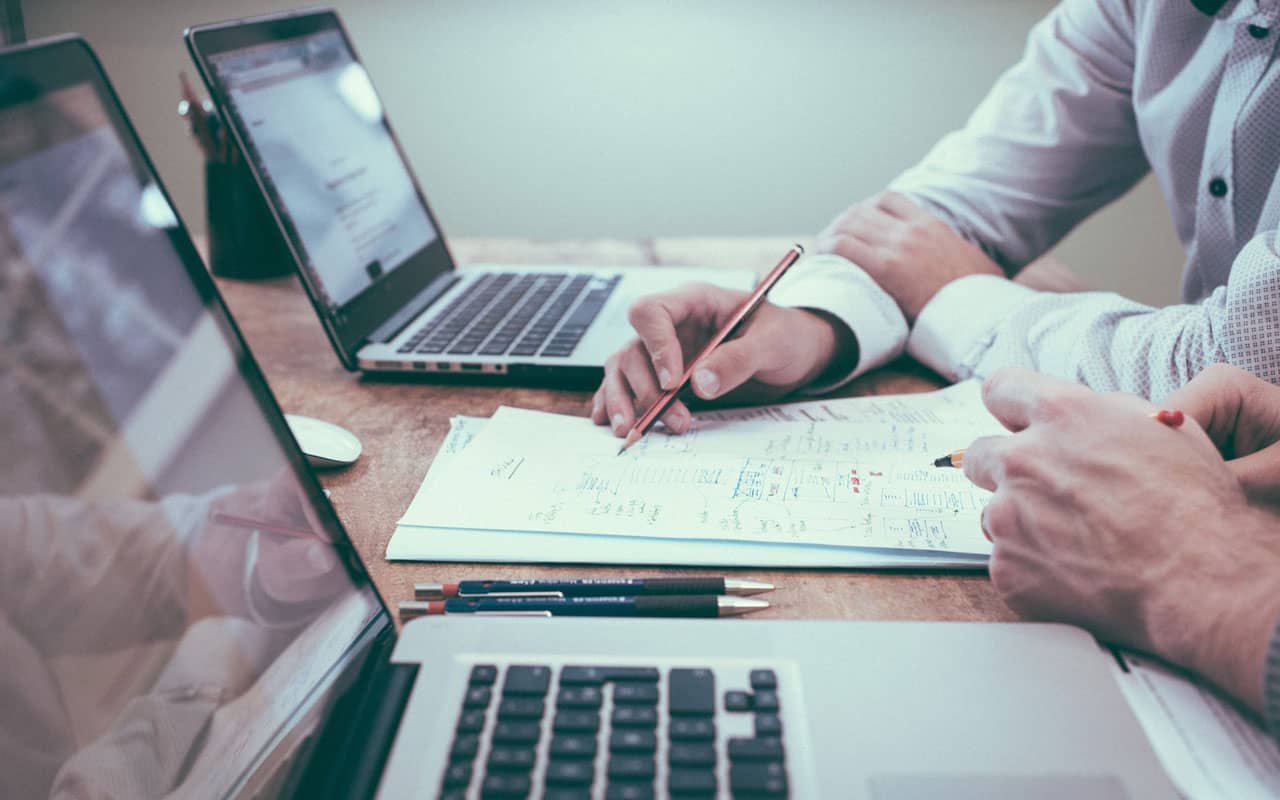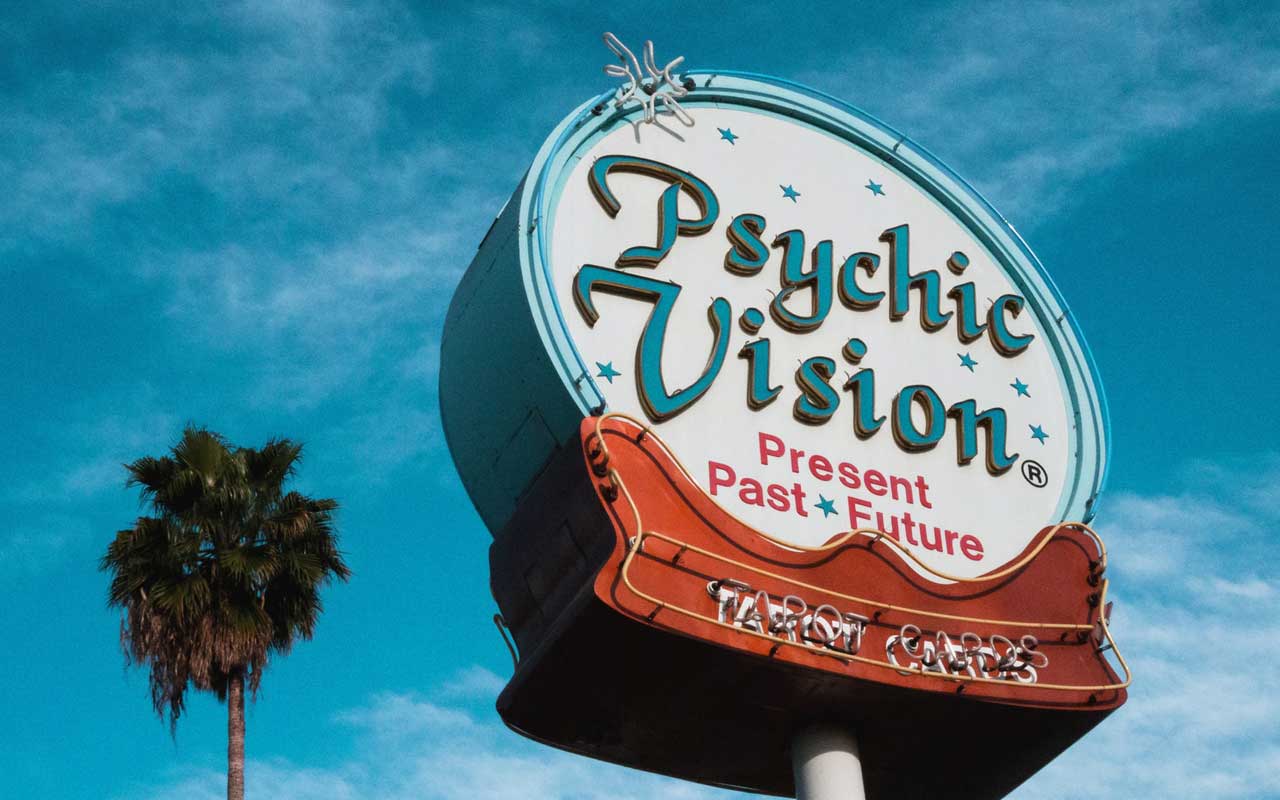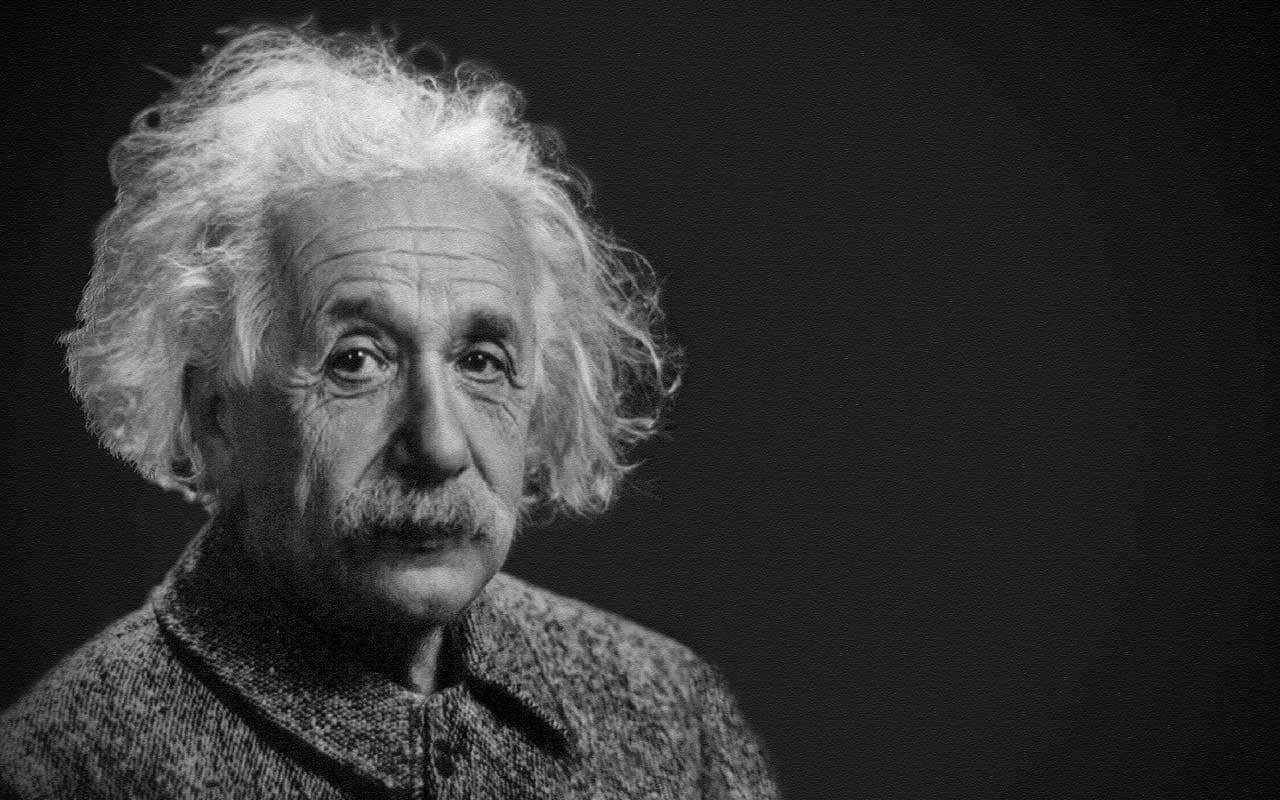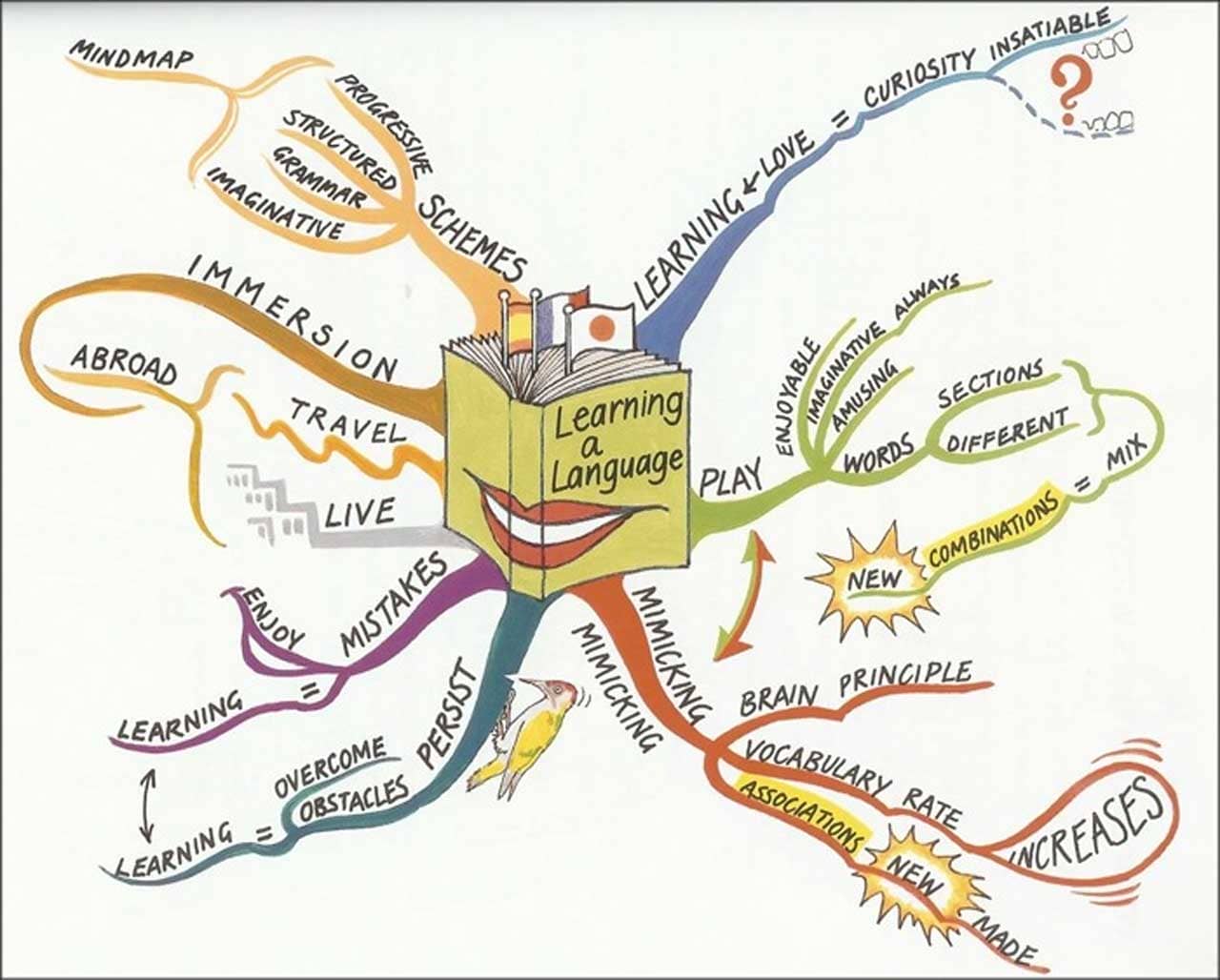Player FM 앱으로 오프라인으로 전환하세요!
How to Improve Concentration: 15 Proven Tactics
저장한 시리즈 ("피드 비활성화" status)
When?
This feed was archived on February 19, 2024 00:56 (
Why? 피드 비활성화 status. 잠시 서버에 문제가 발생해 팟캐스트를 불러오지 못합니다.
What now? You might be able to find a more up-to-date version using the search function. This series will no longer be checked for updates. If you believe this to be in error, please check if the publisher's feed link below is valid and contact support to request the feed be restored or if you have any other concerns about this.
Manage episode 268980215 series 1375140
 If you want to concentrate better, you probably think it’s going to take a lot of work.
If you want to concentrate better, you probably think it’s going to take a lot of work.
After all, your brain probably feels as limp as lettuce.
Mine used to be pretty soggy too. But after I learned what I’m about to teach you on this page, it has become laser sharp.
Even with chronic pain and mental health issues, I’ve improved my concentration enough to participate in memory competitions, learn languages and even give a TEDx Talk.
The best part?
You can easily practice every concentration exercise I’m about to share.
Here’s what this post will cover:
How Focus Works
How To Improve Your Focus: 15 Easy And Fun Strategies
1. Assess Where You Are
2. Stop Asking Search Engines
3. Meditation and Mindfulness
4. Memorize Information
5. Choose Long-Form Content
6. Invest In Ad-Free Content
7. Play Games That Improve Concentration
8. Practice Sleep Exercises
9. Get Into Nature
10. Coffee and Dark Chocolate
11. Mind Map
12. Let Go Of Outcomes
13. See More Friends, More Often
14. Have A Vision And Long-Term Missions
15. Seek Complexity and Question Simplicity
Challenge Your Concentration Daily For Best Results
How Focus Works
Your brain actually operates in at least two different “zones” of focus:
- Default Mode Network
- Task Positive Network
The DMN is slow, plodding, and constantly tricks you into thinking about your past and future. Worse, it keeps you daydreaming about an alternative future that does not and cannot exist. What a waste of time!

As happened to me, lingering in this mode has been scientifically proven to keep you bogged down and depressed.
That’s why I’m so glad I learned how to get into the Task Positive Network on demand. Basically, this is the part of your brain that creates those dynamic experiences of flow.
You know the kind:
When time passes without you noticing and you feel amazing. You’re completely focused on the present moment and enjoying everything – like when you’re on a first date, riding your bike through a fun park, or playing a stimulating game.
If you want to instantly fall into this incredible feeling of focus, keep your eyes glued to this page. I have science that backs up everything I’m about to share with you.
And the best part is that all of these focus exercises are fun and easy to complete.
How To Improve Your Focus: 15 Easy And Fun Strategies
Let’s break down all 15 strategies in detail.
1. Assess Where You Are
One of the problems people face is that they haven’t got a concrete description of the problem. As physicist and science educator Paul Black has shown, self-assessment is a major key to experiencing any kind of development.

To keep things simple and fun, get out a piece of paper and rate your daily concentration on a scale of 1-10. (If you don’t like that range, change it to 1-100 or whatever you like).
For example, I would rate myself a 9 most days. If I haven’t slept well, it might be a 7 or 8. The point is just to get a sense of where you’re at — then you can journal a plan for how to increase focus immediately.
I also suggest you give yourself a series of metaphors. This is a science-backed activity I talk about in my book The Victorious Mind: How to Master Memory, Meditation and Mental Well-Being.
I’m not alone in pointing out such science. Nir Eyal talks about similar research in Indistractable (highly recommended).
2. Stop Asking Search Engines (At Least Not Immediately)
Some friends visited me in Brisbane a while back. We were talking about music and Richard Marx came up. I started to guess the year and immediately everyone but me reached for their phones to check the year of one of his most popular songs.
“Stop!” I urged them. “Let’s try to figure it out and exercise our brains a bit.”
We did and we came very close to nailing the exact year. I was actually right the first time, but second-guessed myself by one year.

Constantly looking things up has led to something called “learned helplessness.” Martin Seligman and Steven Maier are two of the first scientists to study the problem.
It’s really insidious because the more you train yourself to look up answers, the more likely you are to:
- Continue looking up answers you probably could find in your memory if you spent a bit of time practicing active recall
- Blaming your need to look things up on bad memory
The truth is, your memory probably isn’t as bad as you think. It’s just lacking exercise.
The next tip will help you catch yourself looking things up and start using your brain more often. The benefits will astound you.
3. Meditation and Mindfulness
Meditation is essentially a practice and mindfulness is the result. You’ll be more aware of your environment and the thoughts rolling around in your head.
In other words, you’ll spend less time in the Default Mode Network and more time in the Task Positive Network.

This is useful because you start to realize that you are not your thoughts. You are more like the conscious witness to your thoughts.
Or to put it another way, your thoughts are like clouds in the sky. They need each other to exist, but the sky serves as the field clouds move across. It’s still the sky, even when there are no clouds in sight.
When your conscious experience becomes as clear as the sky, you’ll notice those clouds of thoughts a lot more. As a result, you’ll catch yourself reaching for your phone for quick answers. Then you can stop and at least try to bring the answer to mind. For example, with the Richard Marx song, I guessed what grade I would have been in when it came out, figured out my age, and deduced the year from there.
This simple activity provides tremendous brain exercise that will help you focus better. And now you know how to be more aware of opportunities to practice it.
4. Memorize Information
Frankly, it breaks my heart when I see people claiming that memorization isn’t necessary anymore in the age of the smartphone.
Nothing could be further from the truth!
If you want to improve your focus, you need to commit information to memory. Doing so also provides the path to understanding information better.
Or you can take up language learning, even opting to learn more than one language at a time.
If you need help with memorization, just give the following a try:
Register for the free training yet? Good! Let’s keep going.
5. Choose Long-Form Content
Every day people ask me to make shorter videos and podcasts.
The answer is firm no.

Look, there’s a time and place for short videos and thin books. I engage with them too.
But the tough love reality is that the more you snippetize information, the more you’re cutting off your concentration and focus skills.
Do you doubt what I’m saying?
Check out What Reading Does For The Mind by Anne Cunningham and Keith Stanovich. They have shown that reading TONS helps everyone of all ages. An early start really matters, so get started today…
Make it a habit to read long books, watch long videos, and go for long walks to listen to two- or three-hour-long podcast conversations. If you know how to memorize information on the fly, you can memorize the key points as you go using the surrounding environment.
6. Invest In Ad-Free Content
Do you like Spotify? YouTube?
Me too.
But those ads they keep shoving into the music and educational content you’re trying to enjoy?
It’s disastrous for your concentration, and studies have shown it can take up to 25 minutes to get back to your original train of thought after an interruption. Some scientists have called the problem “infomania.”

The worst part is that ads can be so frustrating that they cause you to click away. Then you wind up spending even more time floating all over the Internet, far from the original long-form experience you were trying to have.
The solution? Invest in the subscriptions that eliminate ads from your favorite streaming platforms. Try it for 90 days and I’m sure you’ll agree your concentration abilities have increased.
Plus, research shows that people hate ads. Why on earth would you invite hatred into your life when you can spend a few bucks to eliminate it?
7. Play Games That Improve Concentration
If that’s computer games, by all means, have at it. However, many of us are going to need to get offline to benefit.
To help you out, I’ve gathered a ton of the best brain games for adults for you (online choices included for those who aren’t ready to make a change yet).
8. Practice Sleep Exercises
A lot of people know about robotic sleep routines. You know the kind: have a sleep ritual, brush your teeth at the same time every night, etc.
But does anyone really live like that?

Try this instead:
Have a solid computer curfew. It can be general. Read for 1-2 hours before bed, meditate, and then lay down on your back.
Breathe in and out in a relaxed manner and do not move for as long as you can. This is a yoga posture called Shavasana and it is powerful for people who lack concentration.
For me, the trick is to not “try” and fall asleep. I’m just laying for the sake of practicing not moving. Usually, I’m fast asleep and awake again after a fit 6-8 hours of sleep.
I then repeat the computer curfew by not turning any devices on until I’ve meditated again and read for an hour or so.
The best part about Shavasana is that it’s a great way to practice concentration while you’re resting. It’s kind of like reverse psychology too, as you focus on not moving instead of falling asleep. It’s an awfully tiring thing to do!
9. Get Into Nature
Did you know that the color green makes you more creative? When I learned about this, I instantly realized that I had no plants in my writing space and experimented with adding a few.

To be honest, I’m not sure it made an impact, but I do make a point of getting out into nature a few times a week, ideally once a day. Fortunately, there is a ton of green in my neighborhood, as well as water.
Isn’t it just common sense that fresh air and the calm of natural environments can help improve your concentration? Get outdoors more and enjoy aspects of the world that aren’t filled with news alerts and cars whizzing by.
10. Coffee and Dark Chocolate
People like to argue endlessly over the latest scientific report. One day coffee and chocolate are unhealthy, the next day they’re both manna sent from heaven.

Health particulars aside, both of them are known to improve concentration. And if you get really good dark chocolate that hasn’t had the active ingredients baked out of it, the antioxidants in cacao have been shown to help students improve their test scores by as much as 25%.
Dr. Scott A. Small has shown similar results with aging study participants who tested chocolate’s benefits for memory.
11. Mind Map
My friend and fellow memory expert Tony Buzan worked hard throughout his career to promote what he called “Mental Literacy.”
Mind Mapping was one of the most important tools he recommended for making sure you had enough imaginative and creative space in your mind to be truly “literate.”
Of course, there are many different ways to mind map, but I like his version the best for a few reasons. For one thing, he offered ten laws, all of which lend themselves to the diffuse thinking benefits we’ve already discussed.
Second, you’re using multiple colors on large sheets of paper. This aspect of size and materiality not only exercises your spatial memory in a way that apps cannot — it also helps build your figural memory and allow you to compare and contrast ideas at a glance.
Finally, mind mapping can be used for multiple outcomes, ranging from business planning to language learning. It’s an incredible tool and I suggest you spend a good 90 days learning and practicing this skill. Your concentration will improve.
12. Let Go Of Outcomes
A lot of people want to know they will be successful before getting started on developing new skills.
The problem is… no one gets to know the future. According to the Growing Block Universe hypothesis, the future doesn’t even exist yet — and learning about it will definitely stretch your concentration!)

Not everyone gets hung up on the need for certainty, but those who do will benefit from spending some time on weeding it out. It’s not that it’s harming their concentration. It’s that waiting for the certainty you will succeed amounts to focusing on the wrong things.
You might need to work on a personality trait psychologists call “openness” or openness to experience. I’ve had to work on my own lack of openness a lot in my life — and I’m glad I did.
It was meditation and mindfulness that ultimately helped me see how closed I was to different exercises that were highly likely to help me the most, so the tactics I teach in The Victorious Mind might be your way into greater openness too.
13. See More Friends, More Often
Socialization has been shown to reduce incidents of dementia.

Why might this be a predictable outcome?
For one thing, conversation challenges our memory and critical thinking skills. Such activities preserve “memory reserve” or “cognitive research.”
To explain how, I interviewed scientist Christine Till. Her research has shown that it is not online brain games that help improve concentration and memory, but the follow-up with personal coaches for those who incorporate those aspects of brain training.
Theoretically, you can get the same brain benefits from playing bridge, Monopoly, or just having a good philosophical conversation with a friend. Add in a long walk and a few cafes for even better results.
14. Have A Vision And Long-Term Missions
No one can be an expert in everything. In fact, it’s hard enough to be an expert in just one thing, and really accomplished individuals will usually be so humble, they hide their expertise.
That’s a good thing in the end because none of us know what we don’t know and real scientific living always delays final judgment on the status of all facts.
However, you can instantly improve your concentration by choosing and setting up long term learning goals based on the kinds of research that will lead to personal expertise.

Michael Nielson talks about the importance of integrating research into your life proactively and with vision. As he points out:
A vision is not something you develop overnight. You need to work at it, putting time aside for the process, and learning to integrate it into your everyday life. It’s a challenging process, but over the long run it’s also extremely rewarding. History shows that great actions usually are the outcome of great purpose, even if the action that resulted was not the original purpose.
I know it can be hard to figure out what you should research, but to give you some examples from my own life, I spent six years researching friendship for my dissertation. I’ve spent three years just researching Advaita Vedanta (the philosophy, which is not to be mistaken with the spiritual tradition). I am now hard at work researching Hermeticism and its relationship to memory.
Memory itself is now a nearly twenty-year research mission I’ve been engaged in.
Am I an expert in any of these areas? Hardly — and that’s not false modesty. I’m researching these areas as missions to support a vision for many different reasons. One of them is simply the self-serving outcome that focusing on large research projects improves concentration.
Examples other than the philosophical research projects I personally choose include:
- Learning a language
- Learning a musical instrument
- Learning history (and, for example, memorizing the presidents of a country as you go)
- Learning to draw
- Learning bushcraft
- Learning a hard science like physics or astronomy
Why does it work?
Well, limiting your zone of focus does not mean you’re necessarily excluding other topics. In reality, there is so much overlap between ideas. The problem is that if you never verse yourself well enough in one area of interest, you simply won’t see the connections when you explore the next area.
That’s why spending longer periods of time as a specialist is essential to becoming any kind of generalist. You need a wide enough contextual field in individual areas to have a field of understanding “concentrated” enough to reveal insights in other areas.
So pick a field of human knowledge and study it over the long haul. You’ll be delighted by just how complex one topic can be.
15. Seek Complexity and Question Simplicity
Have you ever heard someone think they’re clever by quoting Einstein? For example, many people quote him as saying something along the lines of, “if you can’t explain it simply, you don’t understand it.” Another version of the quote is “everything should be as simple as it can be, but not simpler.”
The problem is… no one I’ve asked can ever show me where exactly Einstein said any variation of this quote. According to QuoteInvestigator, the quote has a long history and simply cannot be directly attributed to Einstein.

I raise the issue because the world is really freakin’ complicated and Einstein above all knew this fact really well. When people distribute this quote around and attribute it to Einstein, they are often trying to pass off what amounts to ignorance as a form of genius.
It isn’t. The world is complicated and few things are simple. In fact, Mario Bunge has gone to great length to show just how complicated the notion of simplicity actually is. He separates ontological simplicity from semiotic simplicity, to give you just one example.
Frankly, I used to struggle to read heavy information, but as we learned from the science which demonstrates long form content helps all people, just getting started is what matters most.
I am currently reading Einstein myself, and have read Gödel. I don’t pretend to understand it all, but the point is that understanding is built by diving in, not dodging hard things. And if you ever read Einstein, I’m confident you’ll soon see that he did not make complex things simple. If anything, he jumped in, embraced complexity with passion, and refined his knowledge and thinking over time through analogy and visualization.
Do the same and the journey itself will improve your concentration.
Your brain and critical thinking abilities need challenges in order to grow. And you can get started by improving your concentration right now by scanning the environment for meaningless quotes people attribute to famous people.
Just ask yourself, “Is it really true that this person said that?” Chances are, they didn’t. And if they did, there’s probably very useful context you’ll need in order to form a more accurate picture of what they really meant.
Challenge Your Concentration Daily For Best Results
And remember, “simple’ can also mean simple in terms of your intellect. Often, that’s precisely what people prefer because they’re trying to dodge taking steps to improve their lives. They’re seeking the path of least resistance.
But not you. You seek challenge and even engage in daily concentration meditation routines. You recognize the value of meditating for more focus and concentration and don’t let a day go buy without doing it.

And you regularly apply memory techniques.
For example, when you realize that someone named “Roger Sessions” is perhaps the first person behind the misattribution of the “simple” quote to Einstein, instead of letting the fact pass you by, memorize that person’s name.
When you have memory techniques on your side, it’s easy to improve your concentration by practicing multiple times throughout the day. Every word is built out of letters, and we who use memory techniques seriously have an image for every letter of the alphabet.
That means we can look at facts and focus on them in ways people who do not have these techniques cannot.
So in some, I urge you to say, “Yes! I will do what it takes to engage in every concentration challenge I can find!” Embracing the challenge and showing up consistently is key because here’s the most important fact of all:
If you’re willing to spend a few months practicing the skills on this page most people won’t, you’ll be able to enjoy concentration skills that most can’t.
Is that statement “simple” enough for you?
484 에피소드
저장한 시리즈 ("피드 비활성화" status)
When?
This feed was archived on February 19, 2024 00:56 (
Why? 피드 비활성화 status. 잠시 서버에 문제가 발생해 팟캐스트를 불러오지 못합니다.
What now? You might be able to find a more up-to-date version using the search function. This series will no longer be checked for updates. If you believe this to be in error, please check if the publisher's feed link below is valid and contact support to request the feed be restored or if you have any other concerns about this.
Manage episode 268980215 series 1375140
 If you want to concentrate better, you probably think it’s going to take a lot of work.
If you want to concentrate better, you probably think it’s going to take a lot of work.
After all, your brain probably feels as limp as lettuce.
Mine used to be pretty soggy too. But after I learned what I’m about to teach you on this page, it has become laser sharp.
Even with chronic pain and mental health issues, I’ve improved my concentration enough to participate in memory competitions, learn languages and even give a TEDx Talk.
The best part?
You can easily practice every concentration exercise I’m about to share.
Here’s what this post will cover:
How Focus Works
How To Improve Your Focus: 15 Easy And Fun Strategies
1. Assess Where You Are
2. Stop Asking Search Engines
3. Meditation and Mindfulness
4. Memorize Information
5. Choose Long-Form Content
6. Invest In Ad-Free Content
7. Play Games That Improve Concentration
8. Practice Sleep Exercises
9. Get Into Nature
10. Coffee and Dark Chocolate
11. Mind Map
12. Let Go Of Outcomes
13. See More Friends, More Often
14. Have A Vision And Long-Term Missions
15. Seek Complexity and Question Simplicity
Challenge Your Concentration Daily For Best Results
How Focus Works
Your brain actually operates in at least two different “zones” of focus:
- Default Mode Network
- Task Positive Network
The DMN is slow, plodding, and constantly tricks you into thinking about your past and future. Worse, it keeps you daydreaming about an alternative future that does not and cannot exist. What a waste of time!

As happened to me, lingering in this mode has been scientifically proven to keep you bogged down and depressed.
That’s why I’m so glad I learned how to get into the Task Positive Network on demand. Basically, this is the part of your brain that creates those dynamic experiences of flow.
You know the kind:
When time passes without you noticing and you feel amazing. You’re completely focused on the present moment and enjoying everything – like when you’re on a first date, riding your bike through a fun park, or playing a stimulating game.
If you want to instantly fall into this incredible feeling of focus, keep your eyes glued to this page. I have science that backs up everything I’m about to share with you.
And the best part is that all of these focus exercises are fun and easy to complete.
How To Improve Your Focus: 15 Easy And Fun Strategies
Let’s break down all 15 strategies in detail.
1. Assess Where You Are
One of the problems people face is that they haven’t got a concrete description of the problem. As physicist and science educator Paul Black has shown, self-assessment is a major key to experiencing any kind of development.

To keep things simple and fun, get out a piece of paper and rate your daily concentration on a scale of 1-10. (If you don’t like that range, change it to 1-100 or whatever you like).
For example, I would rate myself a 9 most days. If I haven’t slept well, it might be a 7 or 8. The point is just to get a sense of where you’re at — then you can journal a plan for how to increase focus immediately.
I also suggest you give yourself a series of metaphors. This is a science-backed activity I talk about in my book The Victorious Mind: How to Master Memory, Meditation and Mental Well-Being.
I’m not alone in pointing out such science. Nir Eyal talks about similar research in Indistractable (highly recommended).
2. Stop Asking Search Engines (At Least Not Immediately)
Some friends visited me in Brisbane a while back. We were talking about music and Richard Marx came up. I started to guess the year and immediately everyone but me reached for their phones to check the year of one of his most popular songs.
“Stop!” I urged them. “Let’s try to figure it out and exercise our brains a bit.”
We did and we came very close to nailing the exact year. I was actually right the first time, but second-guessed myself by one year.

Constantly looking things up has led to something called “learned helplessness.” Martin Seligman and Steven Maier are two of the first scientists to study the problem.
It’s really insidious because the more you train yourself to look up answers, the more likely you are to:
- Continue looking up answers you probably could find in your memory if you spent a bit of time practicing active recall
- Blaming your need to look things up on bad memory
The truth is, your memory probably isn’t as bad as you think. It’s just lacking exercise.
The next tip will help you catch yourself looking things up and start using your brain more often. The benefits will astound you.
3. Meditation and Mindfulness
Meditation is essentially a practice and mindfulness is the result. You’ll be more aware of your environment and the thoughts rolling around in your head.
In other words, you’ll spend less time in the Default Mode Network and more time in the Task Positive Network.

This is useful because you start to realize that you are not your thoughts. You are more like the conscious witness to your thoughts.
Or to put it another way, your thoughts are like clouds in the sky. They need each other to exist, but the sky serves as the field clouds move across. It’s still the sky, even when there are no clouds in sight.
When your conscious experience becomes as clear as the sky, you’ll notice those clouds of thoughts a lot more. As a result, you’ll catch yourself reaching for your phone for quick answers. Then you can stop and at least try to bring the answer to mind. For example, with the Richard Marx song, I guessed what grade I would have been in when it came out, figured out my age, and deduced the year from there.
This simple activity provides tremendous brain exercise that will help you focus better. And now you know how to be more aware of opportunities to practice it.
4. Memorize Information
Frankly, it breaks my heart when I see people claiming that memorization isn’t necessary anymore in the age of the smartphone.
Nothing could be further from the truth!
If you want to improve your focus, you need to commit information to memory. Doing so also provides the path to understanding information better.
Or you can take up language learning, even opting to learn more than one language at a time.
If you need help with memorization, just give the following a try:
Register for the free training yet? Good! Let’s keep going.
5. Choose Long-Form Content
Every day people ask me to make shorter videos and podcasts.
The answer is firm no.

Look, there’s a time and place for short videos and thin books. I engage with them too.
But the tough love reality is that the more you snippetize information, the more you’re cutting off your concentration and focus skills.
Do you doubt what I’m saying?
Check out What Reading Does For The Mind by Anne Cunningham and Keith Stanovich. They have shown that reading TONS helps everyone of all ages. An early start really matters, so get started today…
Make it a habit to read long books, watch long videos, and go for long walks to listen to two- or three-hour-long podcast conversations. If you know how to memorize information on the fly, you can memorize the key points as you go using the surrounding environment.
6. Invest In Ad-Free Content
Do you like Spotify? YouTube?
Me too.
But those ads they keep shoving into the music and educational content you’re trying to enjoy?
It’s disastrous for your concentration, and studies have shown it can take up to 25 minutes to get back to your original train of thought after an interruption. Some scientists have called the problem “infomania.”

The worst part is that ads can be so frustrating that they cause you to click away. Then you wind up spending even more time floating all over the Internet, far from the original long-form experience you were trying to have.
The solution? Invest in the subscriptions that eliminate ads from your favorite streaming platforms. Try it for 90 days and I’m sure you’ll agree your concentration abilities have increased.
Plus, research shows that people hate ads. Why on earth would you invite hatred into your life when you can spend a few bucks to eliminate it?
7. Play Games That Improve Concentration
If that’s computer games, by all means, have at it. However, many of us are going to need to get offline to benefit.
To help you out, I’ve gathered a ton of the best brain games for adults for you (online choices included for those who aren’t ready to make a change yet).
8. Practice Sleep Exercises
A lot of people know about robotic sleep routines. You know the kind: have a sleep ritual, brush your teeth at the same time every night, etc.
But does anyone really live like that?

Try this instead:
Have a solid computer curfew. It can be general. Read for 1-2 hours before bed, meditate, and then lay down on your back.
Breathe in and out in a relaxed manner and do not move for as long as you can. This is a yoga posture called Shavasana and it is powerful for people who lack concentration.
For me, the trick is to not “try” and fall asleep. I’m just laying for the sake of practicing not moving. Usually, I’m fast asleep and awake again after a fit 6-8 hours of sleep.
I then repeat the computer curfew by not turning any devices on until I’ve meditated again and read for an hour or so.
The best part about Shavasana is that it’s a great way to practice concentration while you’re resting. It’s kind of like reverse psychology too, as you focus on not moving instead of falling asleep. It’s an awfully tiring thing to do!
9. Get Into Nature
Did you know that the color green makes you more creative? When I learned about this, I instantly realized that I had no plants in my writing space and experimented with adding a few.

To be honest, I’m not sure it made an impact, but I do make a point of getting out into nature a few times a week, ideally once a day. Fortunately, there is a ton of green in my neighborhood, as well as water.
Isn’t it just common sense that fresh air and the calm of natural environments can help improve your concentration? Get outdoors more and enjoy aspects of the world that aren’t filled with news alerts and cars whizzing by.
10. Coffee and Dark Chocolate
People like to argue endlessly over the latest scientific report. One day coffee and chocolate are unhealthy, the next day they’re both manna sent from heaven.

Health particulars aside, both of them are known to improve concentration. And if you get really good dark chocolate that hasn’t had the active ingredients baked out of it, the antioxidants in cacao have been shown to help students improve their test scores by as much as 25%.
Dr. Scott A. Small has shown similar results with aging study participants who tested chocolate’s benefits for memory.
11. Mind Map
My friend and fellow memory expert Tony Buzan worked hard throughout his career to promote what he called “Mental Literacy.”
Mind Mapping was one of the most important tools he recommended for making sure you had enough imaginative and creative space in your mind to be truly “literate.”
Of course, there are many different ways to mind map, but I like his version the best for a few reasons. For one thing, he offered ten laws, all of which lend themselves to the diffuse thinking benefits we’ve already discussed.
Second, you’re using multiple colors on large sheets of paper. This aspect of size and materiality not only exercises your spatial memory in a way that apps cannot — it also helps build your figural memory and allow you to compare and contrast ideas at a glance.
Finally, mind mapping can be used for multiple outcomes, ranging from business planning to language learning. It’s an incredible tool and I suggest you spend a good 90 days learning and practicing this skill. Your concentration will improve.
12. Let Go Of Outcomes
A lot of people want to know they will be successful before getting started on developing new skills.
The problem is… no one gets to know the future. According to the Growing Block Universe hypothesis, the future doesn’t even exist yet — and learning about it will definitely stretch your concentration!)

Not everyone gets hung up on the need for certainty, but those who do will benefit from spending some time on weeding it out. It’s not that it’s harming their concentration. It’s that waiting for the certainty you will succeed amounts to focusing on the wrong things.
You might need to work on a personality trait psychologists call “openness” or openness to experience. I’ve had to work on my own lack of openness a lot in my life — and I’m glad I did.
It was meditation and mindfulness that ultimately helped me see how closed I was to different exercises that were highly likely to help me the most, so the tactics I teach in The Victorious Mind might be your way into greater openness too.
13. See More Friends, More Often
Socialization has been shown to reduce incidents of dementia.

Why might this be a predictable outcome?
For one thing, conversation challenges our memory and critical thinking skills. Such activities preserve “memory reserve” or “cognitive research.”
To explain how, I interviewed scientist Christine Till. Her research has shown that it is not online brain games that help improve concentration and memory, but the follow-up with personal coaches for those who incorporate those aspects of brain training.
Theoretically, you can get the same brain benefits from playing bridge, Monopoly, or just having a good philosophical conversation with a friend. Add in a long walk and a few cafes for even better results.
14. Have A Vision And Long-Term Missions
No one can be an expert in everything. In fact, it’s hard enough to be an expert in just one thing, and really accomplished individuals will usually be so humble, they hide their expertise.
That’s a good thing in the end because none of us know what we don’t know and real scientific living always delays final judgment on the status of all facts.
However, you can instantly improve your concentration by choosing and setting up long term learning goals based on the kinds of research that will lead to personal expertise.

Michael Nielson talks about the importance of integrating research into your life proactively and with vision. As he points out:
A vision is not something you develop overnight. You need to work at it, putting time aside for the process, and learning to integrate it into your everyday life. It’s a challenging process, but over the long run it’s also extremely rewarding. History shows that great actions usually are the outcome of great purpose, even if the action that resulted was not the original purpose.
I know it can be hard to figure out what you should research, but to give you some examples from my own life, I spent six years researching friendship for my dissertation. I’ve spent three years just researching Advaita Vedanta (the philosophy, which is not to be mistaken with the spiritual tradition). I am now hard at work researching Hermeticism and its relationship to memory.
Memory itself is now a nearly twenty-year research mission I’ve been engaged in.
Am I an expert in any of these areas? Hardly — and that’s not false modesty. I’m researching these areas as missions to support a vision for many different reasons. One of them is simply the self-serving outcome that focusing on large research projects improves concentration.
Examples other than the philosophical research projects I personally choose include:
- Learning a language
- Learning a musical instrument
- Learning history (and, for example, memorizing the presidents of a country as you go)
- Learning to draw
- Learning bushcraft
- Learning a hard science like physics or astronomy
Why does it work?
Well, limiting your zone of focus does not mean you’re necessarily excluding other topics. In reality, there is so much overlap between ideas. The problem is that if you never verse yourself well enough in one area of interest, you simply won’t see the connections when you explore the next area.
That’s why spending longer periods of time as a specialist is essential to becoming any kind of generalist. You need a wide enough contextual field in individual areas to have a field of understanding “concentrated” enough to reveal insights in other areas.
So pick a field of human knowledge and study it over the long haul. You’ll be delighted by just how complex one topic can be.
15. Seek Complexity and Question Simplicity
Have you ever heard someone think they’re clever by quoting Einstein? For example, many people quote him as saying something along the lines of, “if you can’t explain it simply, you don’t understand it.” Another version of the quote is “everything should be as simple as it can be, but not simpler.”
The problem is… no one I’ve asked can ever show me where exactly Einstein said any variation of this quote. According to QuoteInvestigator, the quote has a long history and simply cannot be directly attributed to Einstein.

I raise the issue because the world is really freakin’ complicated and Einstein above all knew this fact really well. When people distribute this quote around and attribute it to Einstein, they are often trying to pass off what amounts to ignorance as a form of genius.
It isn’t. The world is complicated and few things are simple. In fact, Mario Bunge has gone to great length to show just how complicated the notion of simplicity actually is. He separates ontological simplicity from semiotic simplicity, to give you just one example.
Frankly, I used to struggle to read heavy information, but as we learned from the science which demonstrates long form content helps all people, just getting started is what matters most.
I am currently reading Einstein myself, and have read Gödel. I don’t pretend to understand it all, but the point is that understanding is built by diving in, not dodging hard things. And if you ever read Einstein, I’m confident you’ll soon see that he did not make complex things simple. If anything, he jumped in, embraced complexity with passion, and refined his knowledge and thinking over time through analogy and visualization.
Do the same and the journey itself will improve your concentration.
Your brain and critical thinking abilities need challenges in order to grow. And you can get started by improving your concentration right now by scanning the environment for meaningless quotes people attribute to famous people.
Just ask yourself, “Is it really true that this person said that?” Chances are, they didn’t. And if they did, there’s probably very useful context you’ll need in order to form a more accurate picture of what they really meant.
Challenge Your Concentration Daily For Best Results
And remember, “simple’ can also mean simple in terms of your intellect. Often, that’s precisely what people prefer because they’re trying to dodge taking steps to improve their lives. They’re seeking the path of least resistance.
But not you. You seek challenge and even engage in daily concentration meditation routines. You recognize the value of meditating for more focus and concentration and don’t let a day go buy without doing it.

And you regularly apply memory techniques.
For example, when you realize that someone named “Roger Sessions” is perhaps the first person behind the misattribution of the “simple” quote to Einstein, instead of letting the fact pass you by, memorize that person’s name.
When you have memory techniques on your side, it’s easy to improve your concentration by practicing multiple times throughout the day. Every word is built out of letters, and we who use memory techniques seriously have an image for every letter of the alphabet.
That means we can look at facts and focus on them in ways people who do not have these techniques cannot.
So in some, I urge you to say, “Yes! I will do what it takes to engage in every concentration challenge I can find!” Embracing the challenge and showing up consistently is key because here’s the most important fact of all:
If you’re willing to spend a few months practicing the skills on this page most people won’t, you’ll be able to enjoy concentration skills that most can’t.
Is that statement “simple” enough for you?
484 에피소드
All episodes
×플레이어 FM에 오신것을 환영합니다!
플레이어 FM은 웹에서 고품질 팟캐스트를 검색하여 지금 바로 즐길 수 있도록 합니다. 최고의 팟캐스트 앱이며 Android, iPhone 및 웹에서도 작동합니다. 장치 간 구독 동기화를 위해 가입하세요.






